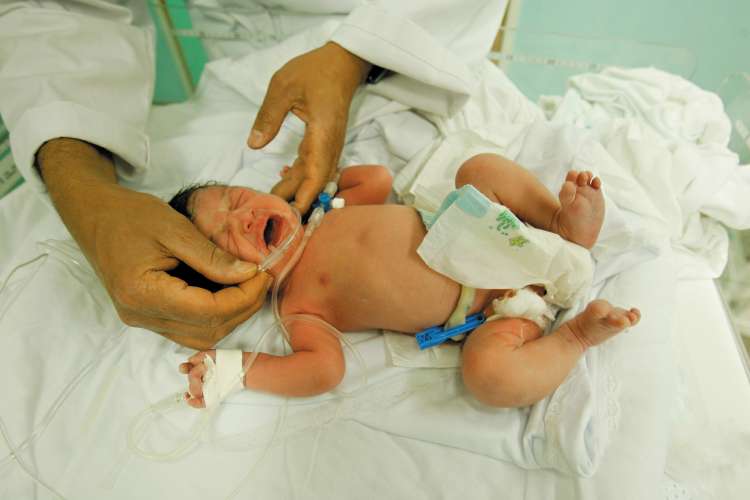Premature babies face lifelong health problems

Your support helps us to tell the story
From reproductive rights to climate change to Big Tech, The Independent is on the ground when the story is developing. Whether it's investigating the financials of Elon Musk's pro-Trump PAC or producing our latest documentary, 'The A Word', which shines a light on the American women fighting for reproductive rights, we know how important it is to parse out the facts from the messaging.
At such a critical moment in US history, we need reporters on the ground. Your donation allows us to keep sending journalists to speak to both sides of the story.
The Independent is trusted by Americans across the entire political spectrum. And unlike many other quality news outlets, we choose not to lock Americans out of our reporting and analysis with paywalls. We believe quality journalism should be available to everyone, paid for by those who can afford it.
Your support makes all the difference.Premature babies face a lifetime of potential health problems, imposing a huge burden on parents and threatening a public health crisis, researchers have warned.
A long-term study of more than one million men and women has found that those born prematurely – before 37 weeks' gestation – were more likely to die in childhood; had lower educational achievement; were less likely to have families of their own; and more likely to have offspring of their own born prematurely and with complications.
The study is among the first to look at the long-term effects of prematurity and may cause parents of such babies to despair. But there is good news. Most premature babies survive, and their chances of survival into adulthood improve the longer they live. Most are also healthy and fertile, despite their early arrival.
The rise in premature births nevertheless poses a challenge to parents and to nations. The number of babies born prematurely has risen by 30 per cent in the past 25 years and they make increased demands on health and educational services. Older mothers and increasing obesity are believed to be driving the trend.
American and Norwegian researchers studied the birth records of more than 1.1 million men and women born in Norway between 1967 and 1988, who were followed up to 2002 when they were aged between 14 and 35.
They found just over 60,000 men and women were born prematurely – one in 20. Deaths were more than five times higher in early childhood (up to age six) among boys and almost 10 times higher among girls. In late childhood (up to 13) the figure was seven times higher among boys (there were no deaths in the age group among girls).
Among the most premature – born before 27 weeks – males were 76 per cent less likely to reproduce and females 67 per cent less likely. Among those with a slightly greater gestational age – born between 28 and 32 weeks – males were 30 per cent less likely to produce offspring and females 19 per cent less likely. The researchers also found that the lower the gestational age, the greater the likelihood of having less education. Females born prematurely were more likely to experience complications giving birth to their own offspring, with increased rates of stillbirth and early infant death.
Geeta Swamy, specialist in maternal-foetal medicine at Duke University, North Carolina, and lead author of the study published in The Journal of the American Medical Association, said: "When a baby is born pre-term we tend to focus on the short-term risk of complications.
"While it is true that the immediate risk of complications is highest [during] hospitalisation and the first year of life, that risk continues into adolescence. And the earlier you are born the higher the risk.
"Those who are born extremely prematurely are likely to have complications throughout their lives."
Standards of neonatal care for premature babies have increased dramatically over the past two decades and many more are surviving at lower gestational ages today, without any signs of damage. However, Dr Swamy said a question remained about the long-term effects and further research was needed to show whether improvements in care affected survival, fertility rates and long term quality of life.
"Pre-term survival is improving now because of interventions we have in pregnancy and neonatal care," she said. "However, it may be that we are improving survival while adversely affecting the overall health and quality of life in the long run."
Join our commenting forum
Join thought-provoking conversations, follow other Independent readers and see their replies
Comments